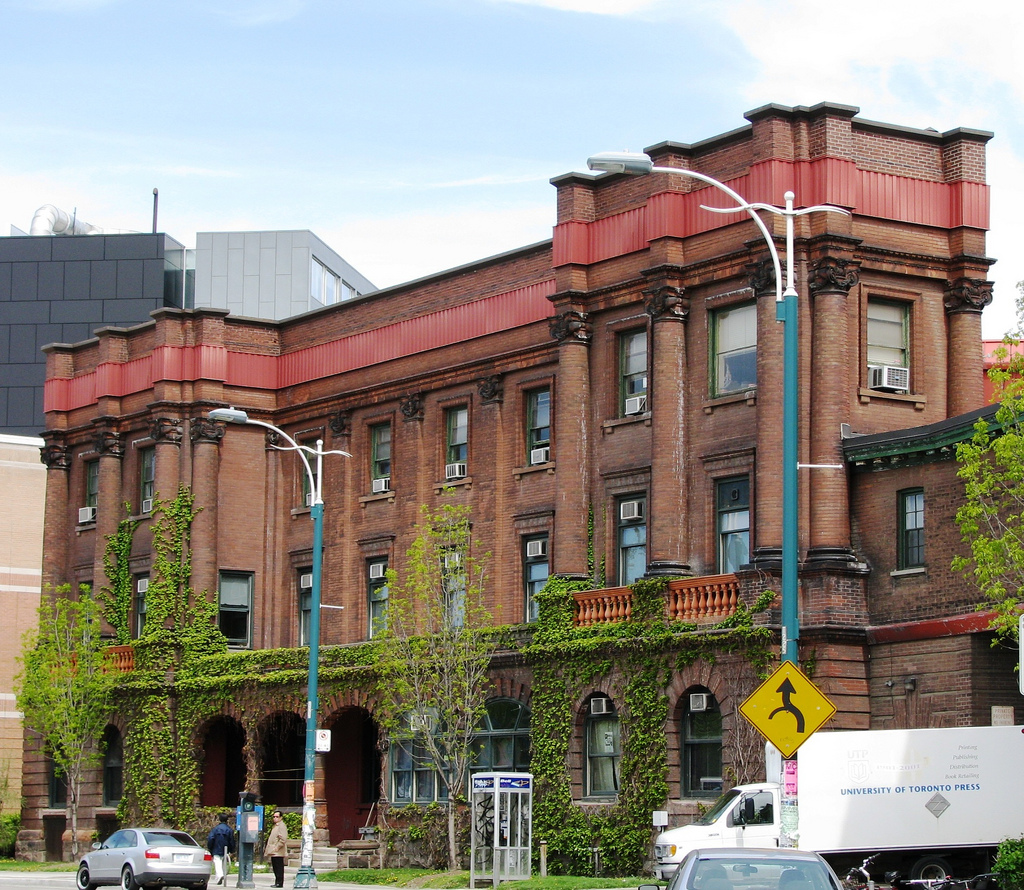U of T’s ties to colonialism in the past and present
On March 11, U of T hosted its first powwow in decades. The event was organized by the Indigenous Studies Students Union as a celebration of First Nations traditions and history. It was open to the public and was specifically aimed at teaching non-Indigenous people about Indigenous practices. The powwow was wildly successful, with at least 500 people in attendance. It was a huge step forward for Indigenous people on campus, as their culture is often appropriated or made to seem mythical.
U of T has not always been an ally to Indigenous people, however. Canadian universities, including U of T, played a part in the creation and maintenance of residential schools, with U of T specifically participating in creating the intellectual context that guided these schools. Colleges on campus openly supported residential schools, and there were even campus activities that aimed to recruit students into working for them. The role of the university in residential schools is often downplayed, and in many ways they were seen as a “silent partner.” As reconciliation cannot begin without an apology, the university needs to publicly acknowledge and apologize for their role in this history.
The university has been attempting to make amends for its role in the oppression of Indigenous people. In addition to the powwow, the university’s Art Museum hosted an exhibition by Indigenous artist Kent Monkman, which celebrated resilience and provided history from an Indigenous perspective. Another Indigenous art installation, REDress, aimed to bring awareness to missing and murdered Indigenous women. It was displayed in Philosopher’s Walk on March 17 for a week.
The university has also committed to hiring a Director of Indigenous Initiatives in response to the Truth and Reconciliation Steering Committee’s recommendations and calls to action. According to Aidan Currie’s article in the Varsity, the director is expected “to coordinate… and liaise with academic and non-academic communities addressing the Steering Committee’s calls to action.” The federal Committee’s report included 34 Calls to Action in the following areas: Indigenous Spaces, Indigenous Faculty and Staff, Indigenous Curriculum, Indigenous Research Ethics and Community Relationships, Indigenous Students and Co-curricular Education, and Institutional Leadership and Implementation.
Currently, the university has some programs relating to Indigenous people, including courses in Arts and Science, Education, Law, Medicine, Nursing, Pharmacy, Public Health, and Social Work. It also offers services and programs through First Nations House, and university-wide campaigns such as the Council on Aboriginal Initiatives. The most recent of these is the Waakebiness-Bryce Institute for Indigenous Health, established in 2015 as a research institute dedicated to the health of Indigenous Canadians.
Despite all this, the university still contributes to the oppression of Indigenous people today.
As recommended by the Steering Committee, the university needs to create more Indigenous spaces on campus. U of T can follow in the City of Toronto’s steps by naming buildings in the language of the Indigenous people who the land belongs to.
Another way the university contributes to oppression is through the money that it invests in fossil fuels. Despite continued recommendations to cease funding of fossil fuels, the university continues to do so, with U of T currently investing in over 200 fossil fuel companies. Not only is this counterproductive to combating climate change, but environmental issues are inherently tied to Indigenous ones. Indigenous people are often directly affected by fossil fuel mining.
The fossil fuel industry is notorious for its destruction of and disregard for Indigenous land, and its lack of consultation with First Nations peoples. This negligence has been most recently seen in the Dakota access pipeline and the Kinder Morgan pipeline controversies. Both these projects are not only incredibly damaging to the environment, but also threaten Indigenous ways of life, damaging their land and displacing their communities.
If the university claims to support Indigenous people, it needs to take the Calls to Action very seriously and put its money where its mouth is, starting with ceasing investment in fossil fuel companies.
Featured image courtesy of Flickr

